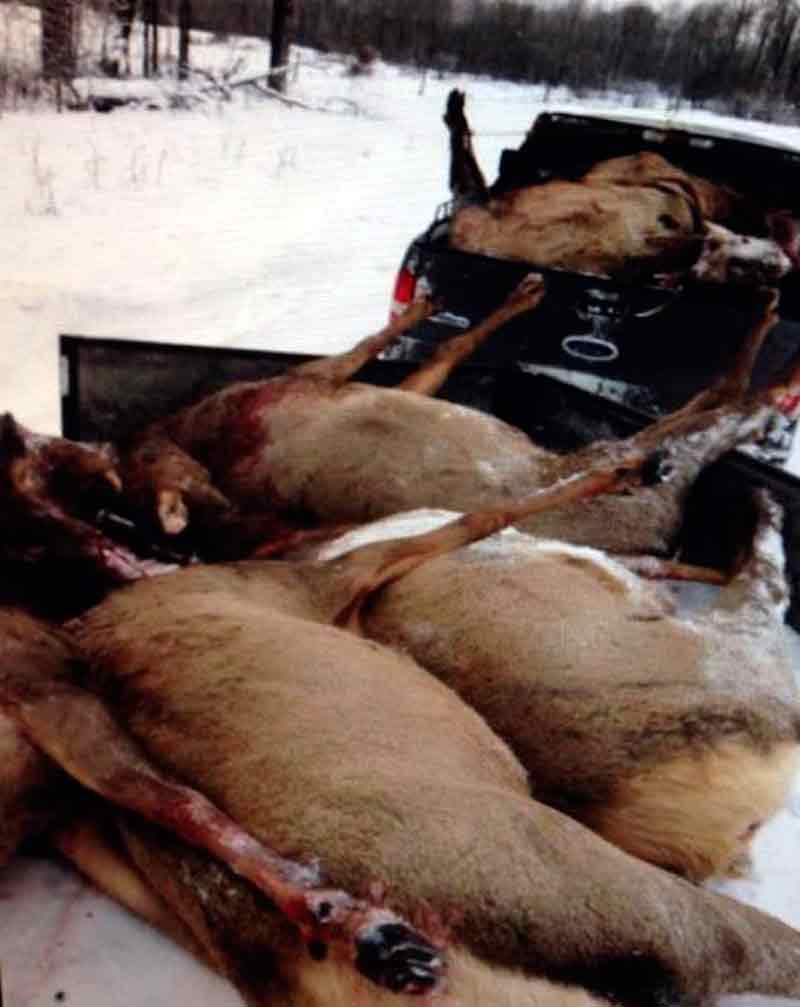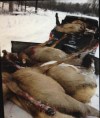Elk hunters broke no laws: province
Advertisement
Read this article for free:
or
Already have an account? Log in here »
To continue reading, please subscribe:
Monthly Digital Subscription
$0 for the first 4 weeks*
- Enjoy unlimited reading on winnipegfreepress.com
- Read the E-Edition, our digital replica newspaper
- Access News Break, our award-winning app
- Play interactive puzzles
*No charge for 4 weeks then price increases to the regular rate of $19.00 plus GST every four weeks. Offer available to new and qualified returning subscribers only. Cancel any time.
Monthly Digital Subscription
$4.75/week*
- Enjoy unlimited reading on winnipegfreepress.com
- Read the E-Edition, our digital replica newspaper
- Access News Break, our award-winning app
- Play interactive puzzles
*Billed as $19 plus GST every four weeks. Cancel any time.
To continue reading, please subscribe:
Add Free Press access to your Brandon Sun subscription for only an additional
$1 for the first 4 weeks*
*Your next subscription payment will increase by $1.00 and you will be charged $16.99 plus GST for four weeks. After four weeks, your payment will increase to $23.99 plus GST every four weeks.
Read unlimited articles for free today:
or
Already have an account? Log in here »
Hey there, time traveller!
This article was published 15/01/2013 (4688 days ago), so information in it may no longer be current.
No laws were broken in the shooting of 12 elk by aboriginal hunters just after Christmas, the province said Monday.
Conservation officers determined that the hunters had permission to access the private property near Duck Mountain Provincial Park and that there was no evidence for laying charges.
However, the hunters have been asked to submit samples of the animals to test for chronic wasting disease (CWD).

The hunters have said they only took the animals they need to feed their families.
Conservation and Water Stewardship Minister Gord Mackintosh said today the province will also conduct a survey of the area as soon as possible to reassess the health of its elk population.
Mackintosh is travelling to Swan River today to meet with local advisers on the matter and on what more can be done to help the province’s moose population recover. Several game hunting areas are closed to moose hunting where numbers have declined due to over hunting, winter ticks and predation.
The killing of the 12 elk in only a few minutes by First Nations hunters raised a firestorm on the Internet as video and photos of the dead animals spread in minutes.
Critics said the province has to do more research to get a better understanding of moose, elk, caribou and deer populations throughout the province and enforce sustainable hunting among all harvesters, including First Nations and Métis hunters.
Vince Crichton, a retired manager of game, fur and problem wildlife with Manitoba Conservation, said he didn’t expect charges to be laid.
Crichton said he supported a move by Mackintosh’s office to extend the province’s ban on deer and elk feeding, including baiting, to all hunters in the bovine tuberculosis and CWD surveillance zones.
The CWD zones were created in 2003 and extend to hunting areas along the province’s boundary with Saskatchewan where CWD has been detected. The bovine tuberculosis surveillance zone extends around Riding Mountain National Park.
Crichton added the province should not have to consult with First Nations on extending the zones as the move is about preventing the spread of diseases. Bovine TB has been found in Manitoba cattle in the past. CWD, a fatal neurologic disease of deer and elk, has not been detected in Manitoba.
“When it comes to disease issues, for them to have to consult with that, there seems to be a disconnect there,” he said.
Mackintosh said the province has a constitutional duty to consult with First Nations on issues that impact them directly.
He said following the survey results and consultations, the government will look at legislative or regulatory changes to ensure healthy elk and deer populations.
bruce.owen@freepress.mb.ca



